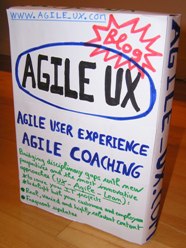The ScrumMaster IS NOT an Agile Coach !
TweeterPosted by jc-Qualitystreet on 2010/03/30
Agile Coach vs ScrumMaster: it is sometimes a bit blurry … probably because the ScrumMaster acts sometimes as an agile coach, using coaching techniques and probably because the Agile coach is sometimes asked to play the role of ScrumMaster in Scrum projects.
But according to me: « The ScrumMaster is not an Agile Coach » … here are some elements of comparison:
|
AGILE COACH |
ScrumMaster |
|
| Mission | High variability. Never the same.
For a person and / or a Team and /or an Organization A strong clarification of the objectives and a precise analysis of the context are required. For this journey toward agility, concrete and measurable result should be defined. |
Little variability. Often the same
For the team
|
| Scope | Agility (broader) and Change | Scrum |
| Link with the Project | The agile coach is not involved in the project (independent) | The ScrumMaster is involved in the project |
| Link with the team | Not part of the team
Does not protect the team |
With the team daily
Protects the team |
| Activity – Presence | Variable and not continuous depending on the context and needs. Stronger presence at the beginning of the mission, less thereafter. The Coach is looking for the autonomy of his client … | Continuous. Throughout the project period. |
| Training | Trained in methods, roles and Agile practices.
Trained in coaching (certified or not) Good knowledge of IT projects life cycles, roles, actors and activities Basic knowledge of psychology |
Trained in the role of ScrumMaster (certified or not) |
| Experience in agility (depth … Years of experience.) | Required | Not necessary |
| Experience in agility (width … Implementation in various contexts, with multiple teams) | Required | Not necessary |
| Acts as a Trainer | + + + | No |
| Acts as a Facilitator | + + | + + + |
| Acts as a Mentor | + + + | + |
| Acts as a Coach | + + + | + |
| Acts as a Consultant | + | No |
| Is the agent of change | + + + | + |
Scale: +++ (Yes Very Much) ; ++ (Yes Much) ; + (Yes Little) ; No
It’s my Vision, what’s yours ?
Tweeter


Kevin Thompson said,
Jean Claude – I agree with the distinctions you draw between the roles of ScrumMaster and Agile Coach. I would add, though, that ScrumMasters for projects that pioneer agile methods often become de facto agile coaches. Someone has to educate the team members and Product Owner about how to get (say) Scrum off the ground. The educator responsibility often ends up with the ScrumMaster.
All of which reinforces my belief that the ScrumMaster must know how all aspects of Scrum work.
Romain said,
To me, the who doesn’t matter that much and it will depends on the organization and on the people.
You have to make sure that these « tasks » are done :
– « protect » the team in order to increase team focus on develoment tasks. I assume that it’s the facilitator role.
– making sure that the process is respected / adapted / improved
In other words, I think that the same person can play the role of agile coach and scrum master (or whatever names we can use). However I think of a limit when it comes to Sprint Review Meeting. This meeting has to be animated by a « chicken » and not by a « pig », then an external agile coach is needed…
Don’t you think so ? (I’m actually a junior developer, and wants to make sure that my point of view make sense 🙂
Romain said,
I made a mistake, I used sprint review meeting while meaning retrospective.